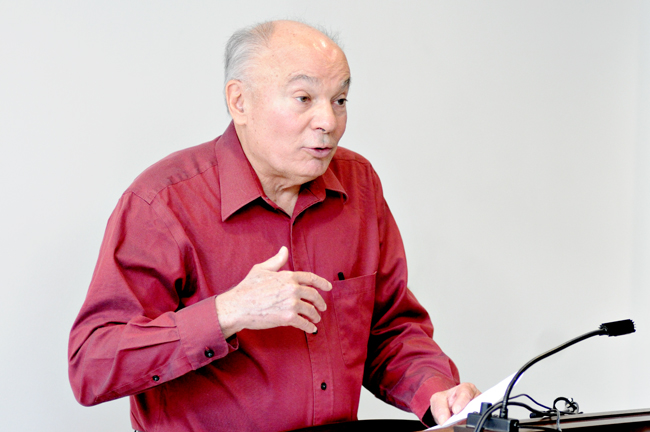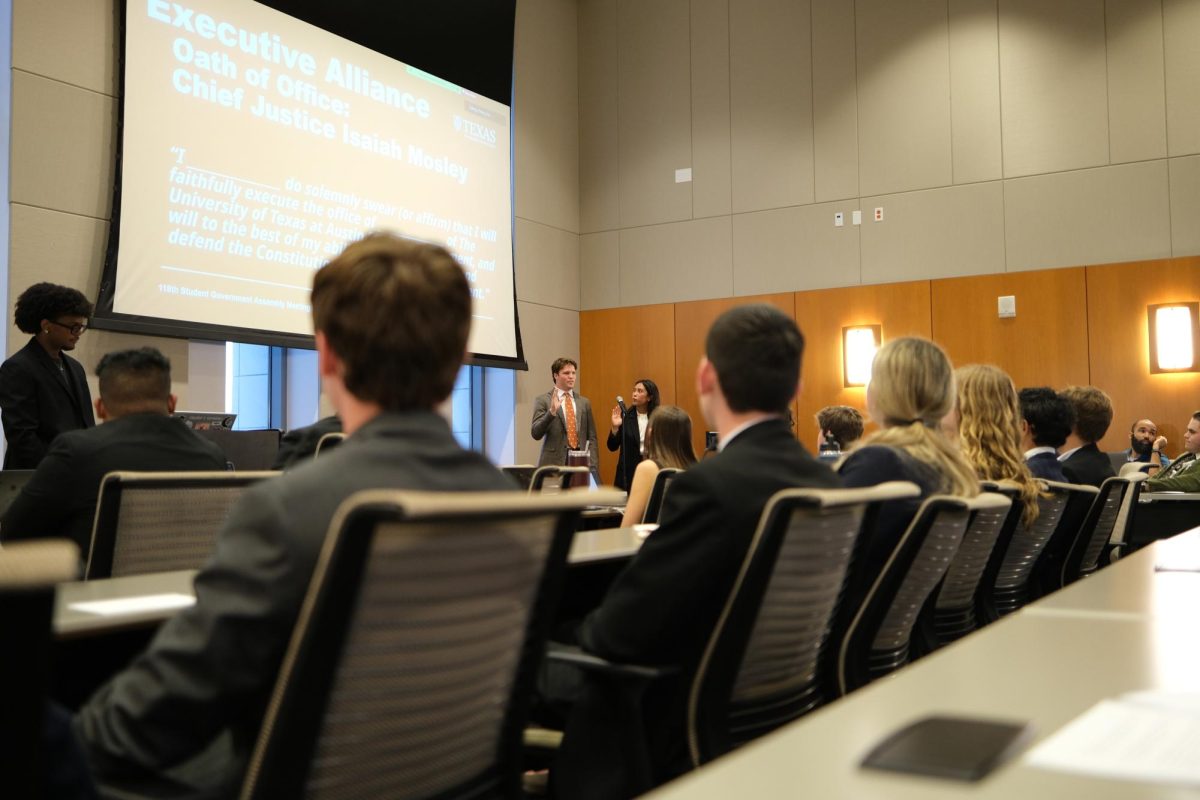When renowned cultural anthropologist Renato Rosaldo’s wife died, he turned to writing to overcome her death and in the process developed a new style of ethnographic writing known as antropoeseìa.
The Department of Anthropology hosted a talk from Rosaldo on Monday as part of their 2012-2013 Seminar Series. Rosaldo, who is a professor of anthropology at New York University, said antropoesía seeks to explain the physical characteristics and expressions of people by focusing on small details. Poetry, he said, was the way he could express the entirety of his experiences surrounding his wife’s death.
“I tried to recover details: smells, feelings, objects, words,” he said. “I found that my memory and my field journal supplemented each other.”
Renato and Shelly Rosaldo were conducting anthropological fieldwork in the Philippines in 1981 when Shelly lost her footing on a cliff and fell 65 feet, killing her on impact. For Renato, the experience was one of severe trauma and grief.
The tragic experience would later lead to Rosaldo’s creation of antropoesía. At a poetry conference in Brooklyn, Rosaldo said he had a verbal outpouring of the feelings and events of the day his wife died, and that his colleagues encouraged him to write about the subject as a way for him to deal with his grief.
Though the writing process was one that Rosaldo said he felt apprehensive toward at first, he gradually began to recall details of the event, and the more he remembered the more he felt compelled to write out of necessity. During his writing, the coupling of free poetic verse along with the detailed descriptions of his fieldwork in the Philippines would give rise to antropoesía.
Rosaldo gradually built up a body of writings in free verse, and together the collections of poems form the content of his forthcoming collection, “The Day of Shelly’s Death.”
“Poetry has proven compelling for me because it allows me to dwell in powerful experiences and perceptions,” Rosaldo said.
Rosaldo also said the collection, which he intends to be a manifesto on antropoesía, helped him explore the experience of his wife’s death.
“Allowing myself to be in those emotions was enormously freeing,” Rosaldo said.
Julie Conquest, a graduate student in anthropology who attended Rosaldo’s talk, said she is interested in using poetry within ethnography. Conquest said ethnography is a method of qualitative analysis that gives a representation of a culture through interviews and field studies, and that poetry can be a way to frame ethnography.
“Poetry comes the closest to conjuring a particular place, time and feeling,” she said.



















